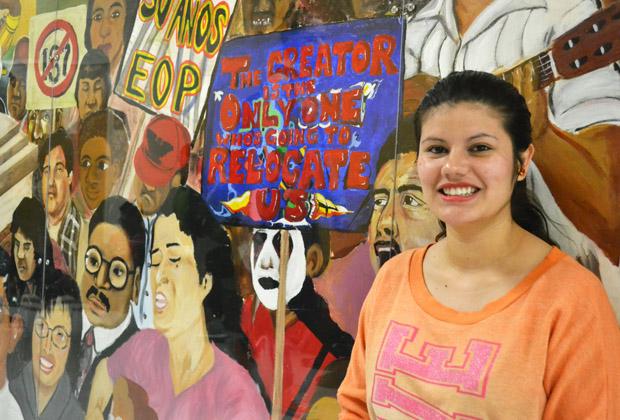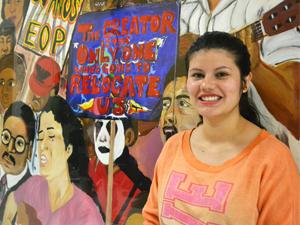
The U.S. House of Representatives will soon make a decision on the Senate approved immigration reform bill, possibly providing a path to citizenship for undocumented immigrants.
Jesus Jevenal, co-chairman of the pro-immigration rights group ‘Dreams To Be Heard’ at CSUN for the past two years, said undocumented students will be most affected by the bill when they no longer need to worry about being deported.
“A lot of undocumented students all have the fear that either [they] or their families will be deported,” Jevenal said. “If this law passes, it gives them the ability to feel safe, or at least to feel not as threatened as they are right now without any sort of law protecting them. ”
President Obama refers to the new bill as his vision for the 21st century immigration system. The newbill states that undocumented immigrants need to “get right with the law before they can get in line and earn their citizenship.”
Ana Miriam, senior psychology and deaf studies major, is an active member of Dreams To Be Heard. She said the new bill does not give undocumented immigrants the rights that they deserve.
“The only reason I believe [the bill] will pass is because it is giving us nothing…and it will bring the government a lot of revenue. They are not giving us what we truly deserve,” Miriam said.
Miriam does believe that change is possible for immigration reform, but only if we start to take a different approach.
“I think we need to humanize the topic of immigration,” she said. “We are called illegals, when human beings are not illegal, but actions are illegal. We are seen as the people who take away other jobs or as criminals, but they never get to know us and get to know our story. Bringing that awareness will help change people’s mind about immigration.”
Part of the immigration reform is to give undocumented college students a green card if they receive a diploma in either science, technology, engineering or mathematics, hoping the students will then stay in the U.S. and contribute to the economy.
Juvenal said undocumented students can help grow the American economy with the knowledge and skills they gained while studying in the U.S.
“Undocumented students study so many different fields and I hope that a lot of them will stay in the country so that they can pursue a job in that field, instead of taking everything they learned here at the states back to their home country and using it there,” Juvenal said.
There are currently 11 million undocumented immigrants in the U.S., but the bill only applies to those who have physically lived in the U.S. on or before December 31, 2011.
In order to be eligible to file for citizenship, undocumented immigrants must first pass a national and federal background check. They also need to be up to date in all their taxes, pay a penalty fee of up to $500 for coming to the U.S illegally, and learn English.
Once those steps are completed, it’s only after eight years that an applicant will be able to become a legal permanent resident of the U.S.
If the bill does not become a law, CSUN professor and immigration expert David Moguel said the Republican Party will suffer in the next presidential election.
“If immigration reform fails because of the Republican Party, moderate voters, many of them Latino, will not forget that in the next presidential election, and they will make the Republican Party pay,” Moguel said.
Idean Behboody, a 21-year-old engineering major, remembers how his father experienced an exhausting process to become a citizen when he moved to the U.S. from Canada and understands how fearful it can be to have someone you know deported.
“I agree with people not having to fear getting deported. It’s a scary thing. I support the fact that this bill protects people from deportation,” Behboody said.
President Obama also supports the DREAM Act as part of the new immigration reform. The DREAM Act will allow children who were brought to the U.S. illegally by their parents to become citizens if they served in the army or pursue higher education for at least two years.






